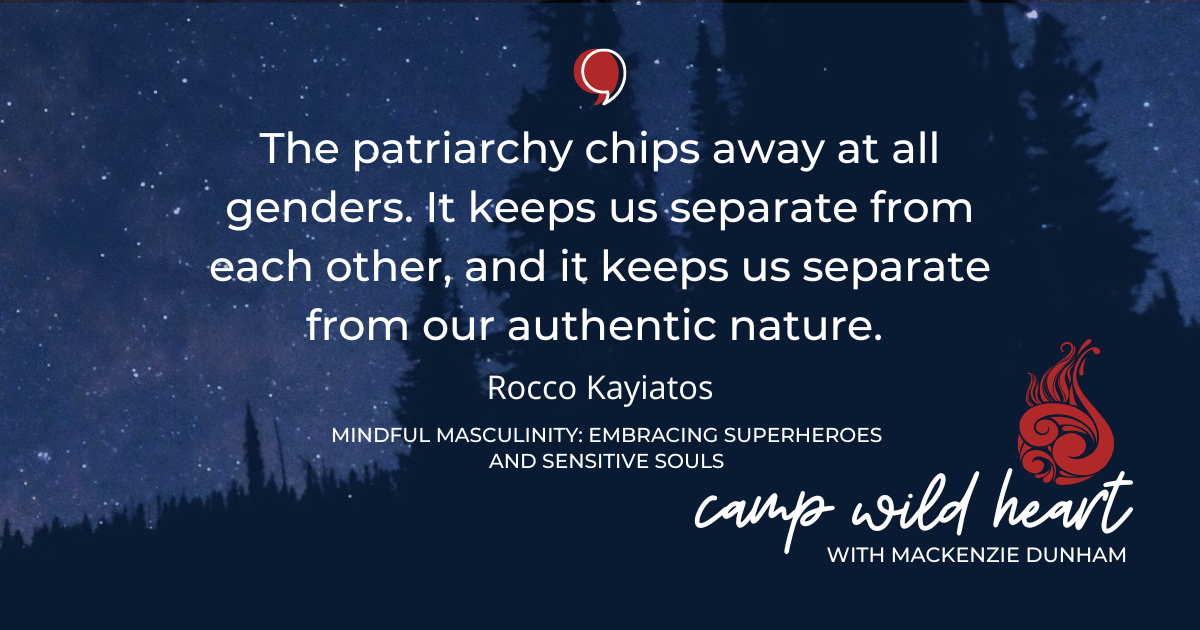Season 04 Ep 06: Mindful Masculinity: Embracing Superheroes and Sensitive Souls with Rocco Kayiatos
Toxic masculinity is more than a buzzword.
Toxic masculinity is part of the gender training we receive starting in childhood, where we learn the rules about how to be a man or a lady. Man up. Boys don’t cry. And it hurts all of us.
Toxic masculinity is a narrow and repressive description of manhood and frankly, I’m surprised more men aren’t pissed about it.
What does that have to do with raising a transgender child?
Toxic masculinity can manifest in many ways and have a profound impact on your children.
It can show up in the ways we talk to our kids, the expectations we place on them, and the way parents and kids perceive gender and gender identity. And it can lead to feelings of shame and internalized transphobia.
Which is why today I’m talking with Rocco Kayiatos about toxic masculinity, how it shows up and impacts our children, what we can do to reeducate ourselves and our children about what it means to be a man, and how embrace mindful masculinity.
Rocco Kayiatos is a musician, poet, actor, and activist. His work centers around gender identity, queer liberation, and social justice. Rocco’s artistry and activism have gained national attention and made him a leading voice in the transgender community. He has brought his powerful message to stages across the country and uses his platform to inspire and empower others to embrace their true selves.
Find this episode for free on your favorite podcast player.
Check out the full episode to hear about:
Rocco’s evolution as a performer, publisher, and activist and why it’s so important to create inclusive spaces and model possibility
How Rocco went about uprooting his own toxic ideas about masculinity and let go of being a “man-hating man”
Why Rocco says the goal should be to expand our definitions of gender, identity, and expression with compassion
How cultural assumptions about what it means to be a man can make trans men shy away from claiming their full identity as men
How a rejection of perceived femininity can lead to expressions of toxic masculinity in trans boys
How parents can start interrogating how toxic masculinity shows up for them and expand their ideas about gender

